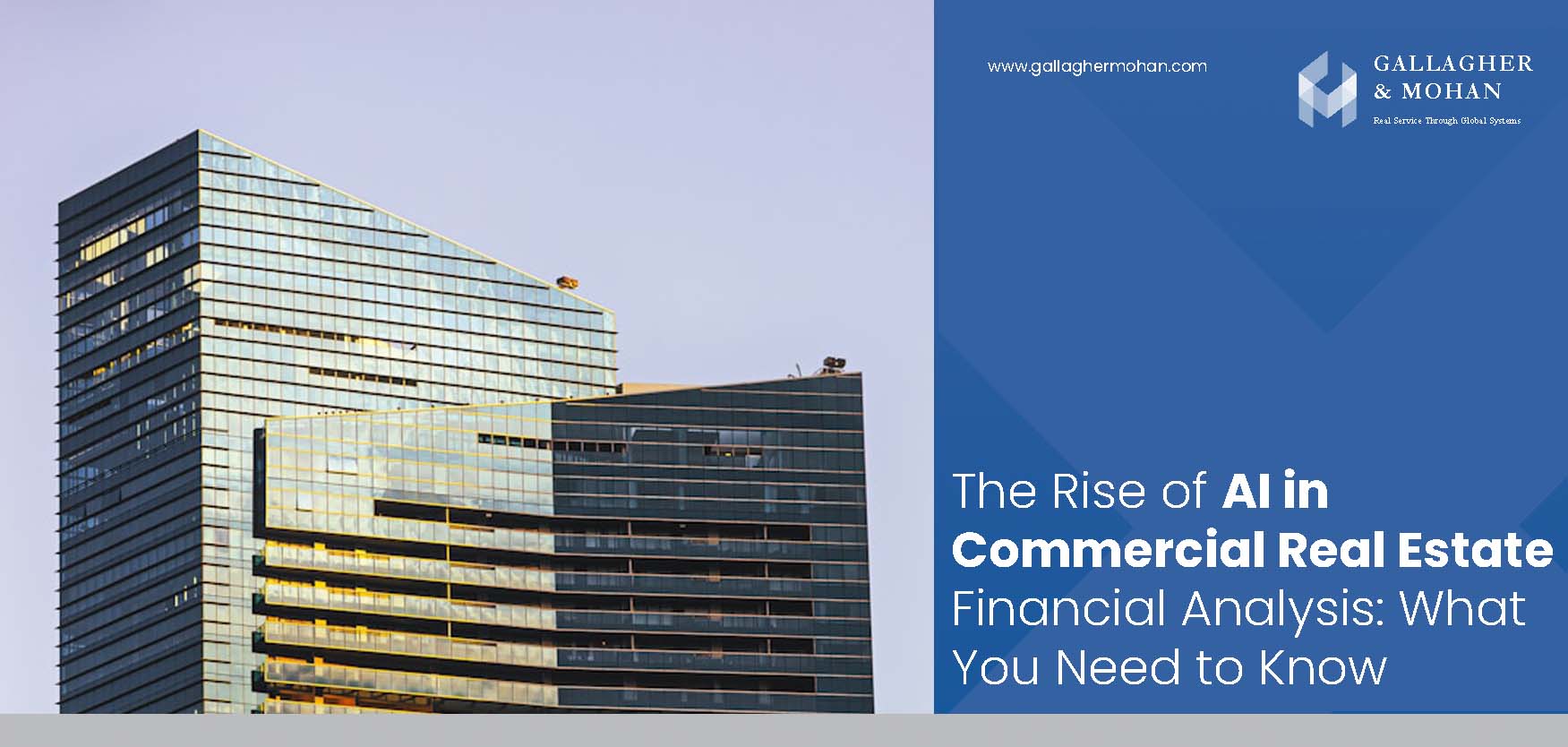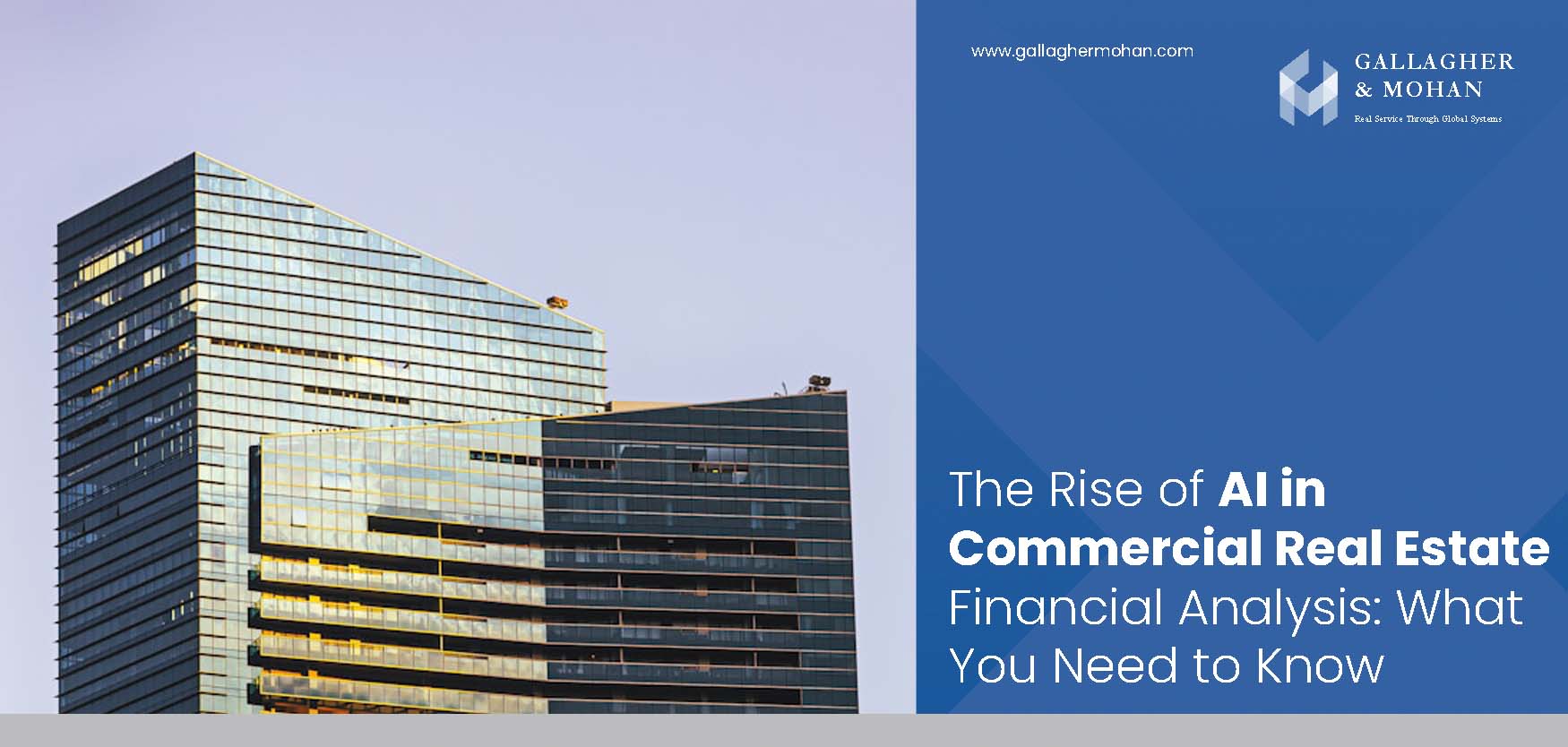13 May 2025
The Rise of AI in Commercial Real Estate Financial Analysis: What You Need to Know
The Commercial Real Estate (CRE) industry is undergoing a technological revolution in 2025, with Artificial Intelligence (AI) becoming a game-changer in financial analysis. As deal complexity increases and market dynamics evolve rapidly, CRE firms are leveraging AI to improve accuracy, speed, and insight in their financial models. This blog explores the critical role AI plays in transforming traditional CRE financial analysis, revealing key benefits, challenges, and future trends that industry professionals must understand to stay competitive.
Understanding AI and Its Role in CRE Financial Analysis
Artificial Intelligence in commercial real estate financial analysis involves the use of advanced algorithms and machine learning to automate and enhance data processing, forecasting, and decision-making. Technologies such as predictive analytics, natural language processing (NLP), and automation tools enable analysts to manage large datasets, identify patterns, and generate precise investment insights. AI-driven tools support essential functions like cash flow forecasting, portfolio risk assessment, and scenario planning—tasks that traditionally consumed significant manual effort and were prone to human error.
Benefits of AI Integration in CRE Financial Analysis
Integrating AI into CRE financial modeling offers numerous advantages:
- Improved Data Accuracy: AI reduces human errors by automating data validation and reconciliation, ensuring cleaner datasets for analysis.
- Real-Time Insights: AI-powered platforms provide up-to-the-minute financial updates and market trend predictions, helping firms respond swiftly to changes
- Enhanced Predictive Capabilities: Machine learning models analyze historical and market data to forecast investment risks and returns more accurately.
- Operational Efficiency: Automation of routine tasks like data entry, report generation, and transaction processing frees up analysts to focus on strategic decision-making.
- Better Scenario Planning: AI enables simulation of multiple market scenarios, helping firms evaluate potential outcomes and make data-driven investment decisions.
Challenges and Considerations for CRE Firms Adopting AI
Despite the clear benefits, adopting AI in CRE financial analysis comes with challenges:
- Data Quality & Integration: AI systems require large volumes of clean, structured data. Many CRE firms face hurdles integrating AI tools with legacy systems and disparate data sources.
- Talent & Expertise: Effective use of AI demands skilled professionals who can interpret AI outputs and integrate them with traditional analysis. This talent gap can slow adoption.
- Investment Costs: Initial costs for AI technology acquisition, customization, and training can be substantial, especially for smaller firms.
- Transparency & Trust: AI-driven models can be complex, creating “black box” scenarios where decision logic is not fully transparent, which can hinder stakeholder trust.
Future Outlook: AI Trends Shaping CRE Financial Analysis
The future of AI in commercial real estate is promising, with several exciting trends on the horizon:
- AI-Powered Dashboards & Visualization: Advanced tools will offer more intuitive and interactive financial data visualizations, making complex data easier to understand.
- Blockchain & IoT Integration: Combining AI with blockchain and Internet of Things (IoT) technologies will enhance asset tracking, valuation, and transaction transparency.
- ESG Metrics Evaluation: AI will increasingly assist in analyzing Environmental, Social, and Governance factors, helping firms meet growing investor demands for sustainable investing.
- Hybrid Intelligence Models: A blend of human expertise and AI will dominate, with analysts focusing on strategic judgment supported by AI’s data processing power.
Conclusion
Artificial Intelligence is revolutionizing commercial real estate financial analysis by improving accuracy, efficiency, and strategic insight. CRE firms that embrace AI technologies position themselves for greater competitiveness and success in 2025 and beyond. Ready to unlock the power of AI in your real estate financial analysis? Connect with Gallagher & Mohan today to learn how our AI-driven financial services can transform your operations.



